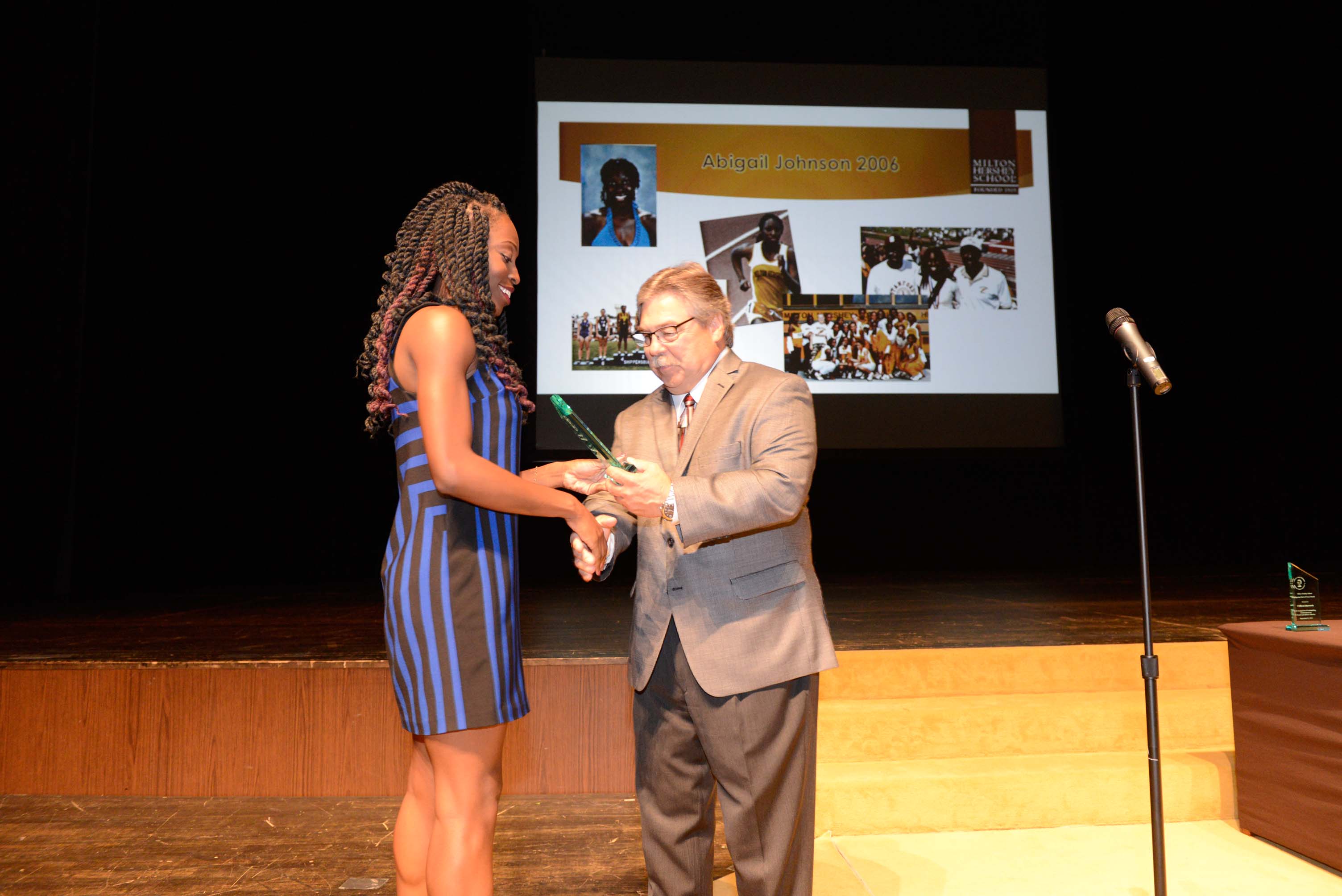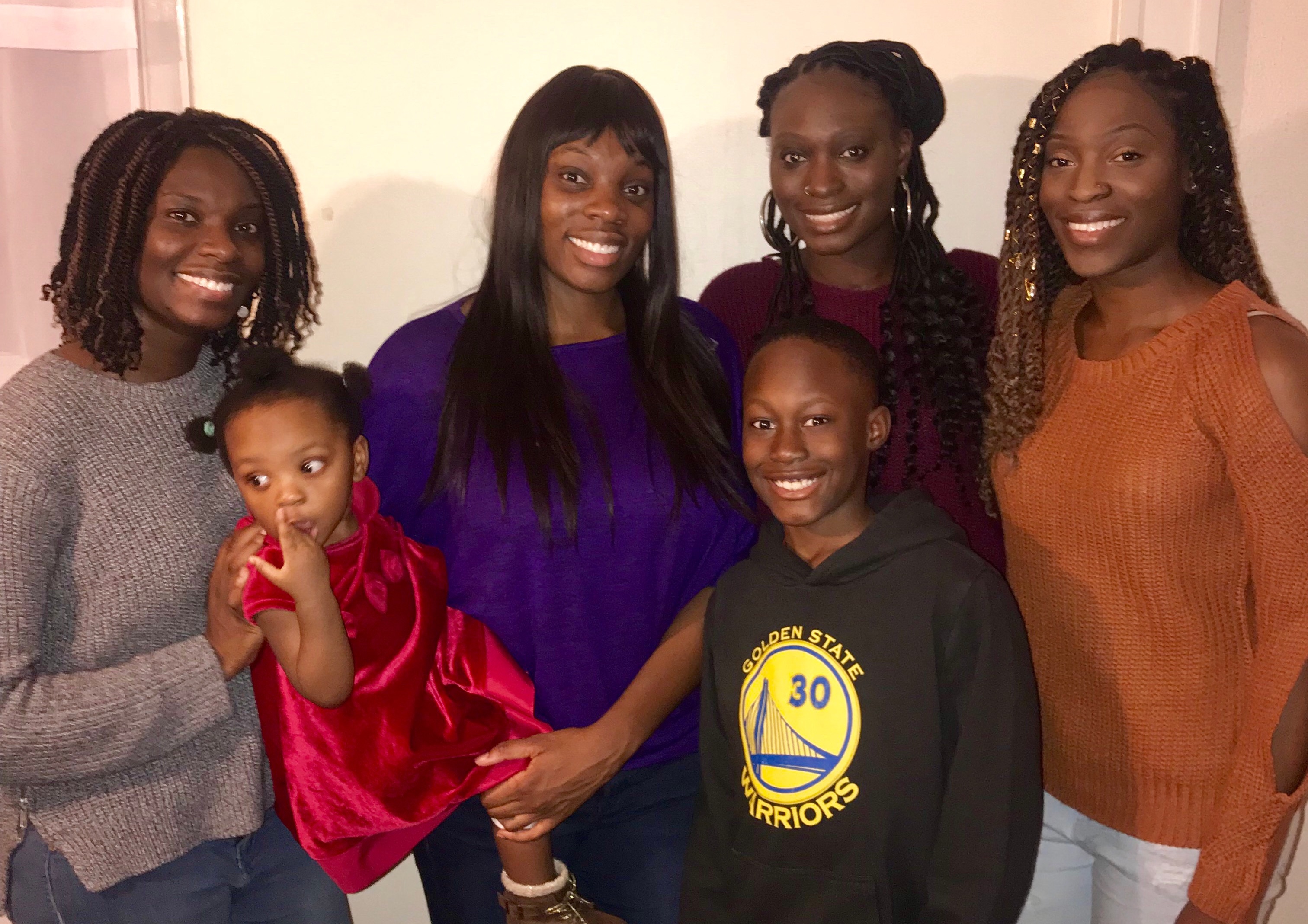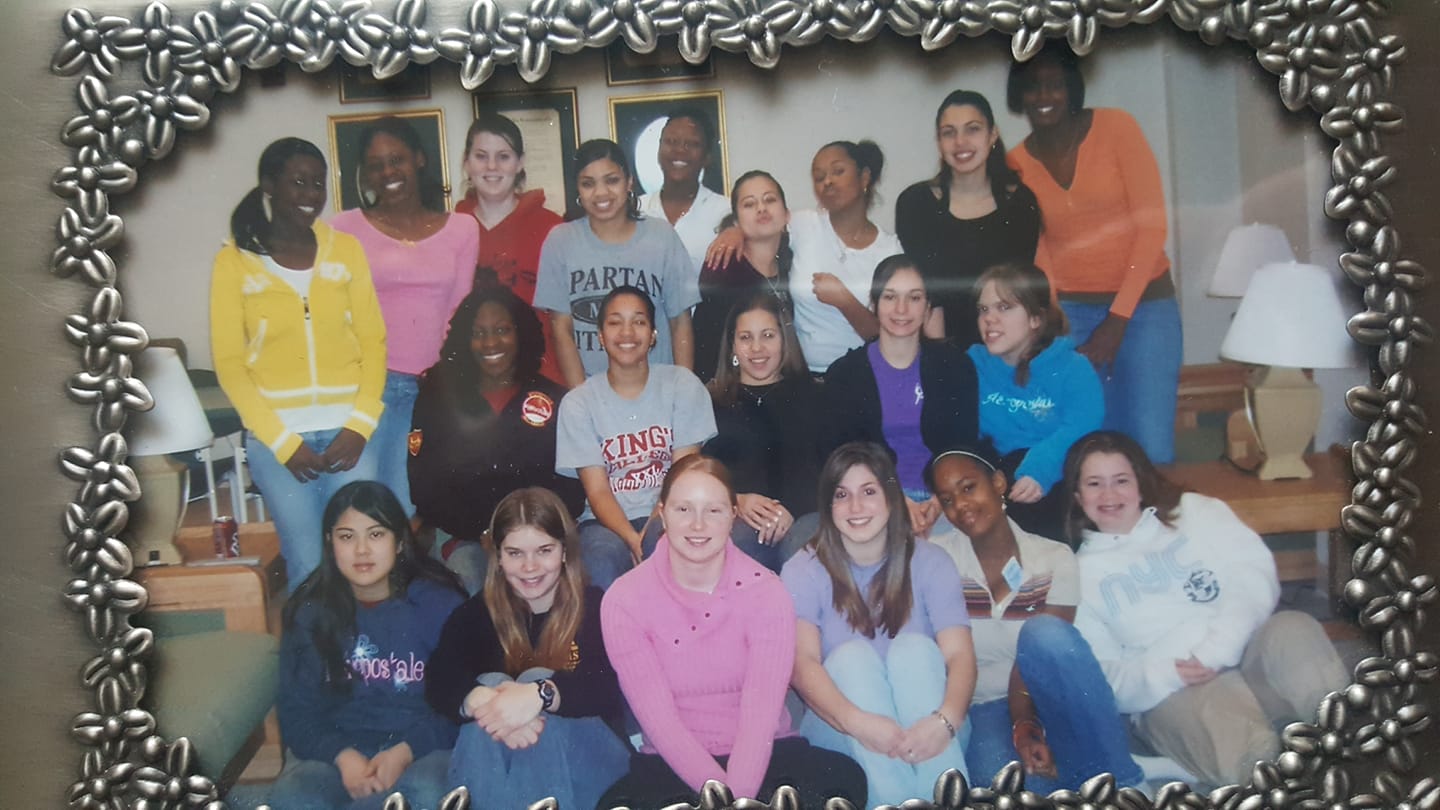Abigail “Abbey” Johnson ’06
For Abigail “Abbey” Johnson ’06, Milton Hershey School is the foundation of what it means to have a healthy community. What she learned and experienced as a student at MHS has become the foundation for her life’s work in the public health industry.
“The heart of what I do is about building healthy communities,” she said. “When working, I look back and think, ‘What if every community across the United States has all of those different strings of opportunity?’ Whether it’s free health and dental care, access to healthy food, the phenomenal education system, or professional mentoring. That thought drives a lot of what I do.”
Abbey is an MHS “lifer”—she enrolled at MHS in first grade and lived at the school until she graduated. Originally from Willingboro Township, New Jersey, Abbey found a community at MHS full of supportive individuals who not only helped her navigate her educational experience but also helped prepare her to change lives in the future.
Abbey was one of four girls raised by a single mom who immigrated to the United States in the 1980s. When Abbey was six years old, she was the first of three of her sisters to enroll at MHS. Her older sister and one younger sister followed her to the school.
“I remember the day my mom dropped me off,” she said. “I didn’t know where I was. It wasn’t clear to me that she was leaving. I remember a lot of confusion and being homesick, but then [I remember] being comforted. My houseparents at the time did a lot to make us all feel connected in the student home. It was [that] sense of family that helped me develop those initial bonds.”
During her time at MHS, Abbey got involved in activities on campus including the Student Government Association, band, and choir. It was on the MHS athletic fields where Abbey found one of her lifelong passions. She started with soccer in elementary school, then field hockey in middle school, and ultimately joined the track and field team in high school—which eventually opened a lot of doors for Abbey.
“The activities on campus provided structure, but also allowed me to pursue different interests throughout my time at MHS,” she said. “It allowed me to meet a lot of people that I still consider my brothers and sisters and develop close relationships with my coaches.”
She credits the structure, experiences, opportunities, and nurturing environment of the residential home life program with molding the fundamentals of who she is today.
“Having three meals a day was not something I experienced at home,” she said. “Even doing chores was different to me. The family lifestyle of everyone gathering at a table and sitting together, eating dinner together—that was different but important to me.”
When Abbey graduated from MHS in 2006, she attended Georgetown University in Washington, D.C. where she earned a track scholarship.
“My older sister, who graduated from MHS, was at Georgetown and three of my MHS teammates were at Georgetown on the track team, so it was a no-brainer for me,” she said. “I was getting a fantastic education but also had social connections.”
When she graduated with a degree in human science, she attended the University of Pittsburgh to pursue a master’s degree in public health, concentrating on teen pregnancy prevention.
“My younger sister, who did not go to MHS, was a teen mom,” she said. “She inspired me to pursue my Master in Public Health and focus on teen pregnancy. I thought to myself, ‘If she would have been given all of these resources that I was given [at MHS], would her circumstance be different?’ I think that’s what drives me; I want everyone to have the same opportunities.”
Her pursuit of a broader impact on public health led her to pursue a fellowship at the Centers for Disease Control and Prevention (CDC) as part of the public health prevention service program. That fellowship brought her to her current position working on the CDC’s opioid response.
“I am most passionate about the ability to work on a pressing public health issue,” she said. “It trickles down to how we can we impact health more holistically so the opioid response is not just related to prescription drug use.”
As part of this team, she partners with states and local communities to develop innovative solutions to link people to care and treatment. The work also involves educating the public about the epidemic and offering solutions to support family and loved ones who may be hurt or going through opioid abuse.
“There’s a lot of energy and momentum to address the overdose epidemic,” Abbey said. “I enjoy being part of the process as we come up with innovative solutions to work toward our goal of curbing the epidemic.”

In 2015, Abbey was inducted into the Milton Hershey School Spartan Hall of Fame for her achievements in the area of athletics.
In the future, Abbey sees herself continuing to address issues and create solutions in the public health space.
“I love bringing different groups together,” she said. “There will always be the next great public health challenge. I love the idea of creating a blueprint or a template that when we do experience the next challenge, it’s easier for people to come together and tackle it from different sides.”
In 2015, Abbey was inducted into the Milton Hershey School Spartan Hall of Fame for her achievements in the area of athletics.
Like many MHS graduates, Abbey returns to campus for class reunions, but there’s a stronger link that pulls her back to campus. Her youngest sister—the one who did not attend MHS, and initially inspired Abbey to pursue her Master in Public Health—has a son. That young boy is now getting the same opportunity his Aunt Abbey was given as a student at Milton Hershey School.
“Hearing his experiences and comparing them to mine is interesting,” she said. “My life has come full circle. I value my experience and time at Milton Hershey [School] so much, and I enjoy reliving my MHS experiences through him.”



